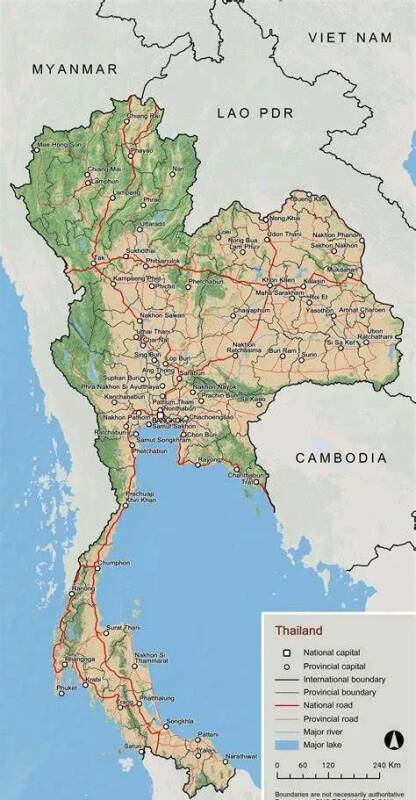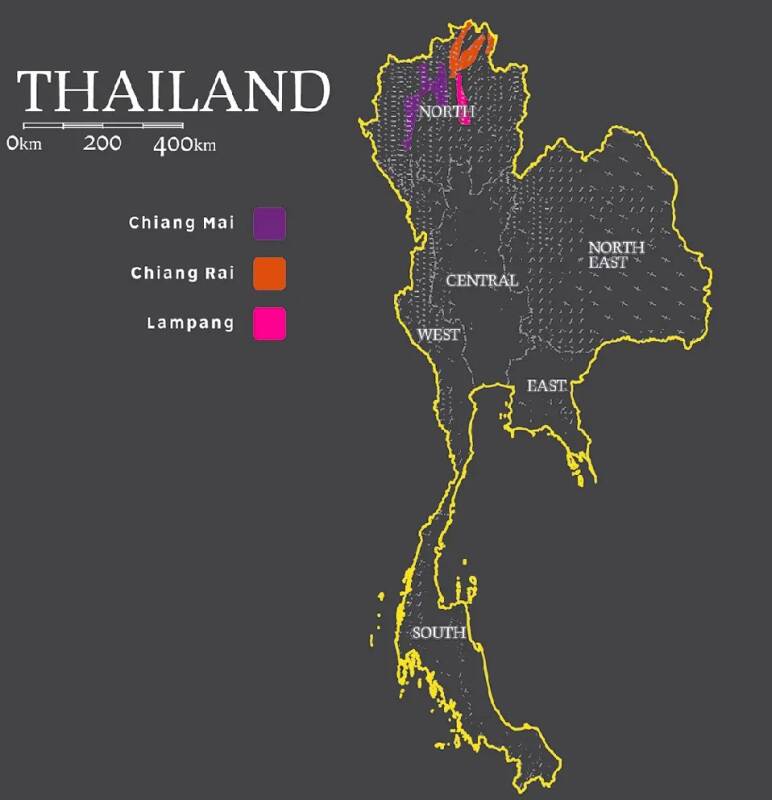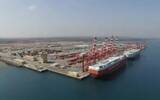Introduction to Miao Coffee Estate, the 2024 Thailand Excellence Cup COE Champion
In Asia, there are suitable geographical conditions, and the Asian continent spans cold, warm and hot zones, and the climate types are complex and diverse, so coffee is grown in many Asian countries, such as Yunnan, Vietnam, Thailand, Indonesia and so on.
The history of coffee in Thailand dates back to the late 19th century, when Thailand was under the reign of King Rama V, when Dutch merchants brought coffee trees to Thailand from Indonesia, but coffee cultivation was not taken seriously at that time.

The real reason for the development of Thai coffee was in the 1970s, when King Bhumibol Adulyadej Adulyadej of Thailand issued a new royal project to grow other cash crops instead of opium cultivation in the country, and coffee was chosen as a suitable alternative crop because the growing environment of coffee trees is similar to that of opium poppy. The royal project selected coffee cultivation in the mountains of northern Thailand, especially Chiang Mai and Chiang Rai provinces, and has gradually developed to this day.
The overall topography of Thailand is high in the north and low in the south, with more than 50% of the plains and lowlands. The terrain is mainly divided into four natural areas, namely, the mountain jungle in the north, the flat and fertile Chao Phraya plain in the middle, the Khorat plateau in the northeast, the continuation of the western mountains in southern Thailand, and the Malay Peninsula to the south.
Most parts of Thailand have a tropical monsoon climate, and the whole year is divided into three seasons: hot season (February-May), rainy season (June-October) and cool season (November-February). The annual average temperature is 27.7 ℃, the highest temperature can reach more than 40 ℃, the annual average rainfall is 1100 mm, and the average humidity is 66% 82%. The country is rich in natural resources, high-altitude mountains, many rivers, abundant Rain Water, and suitable climate and temperature, making coffee one of the main cash crops in the country.
In recent decades, due to Robusta's high environmental tolerance, good cultivation and high coffee production, production has also increased significantly in southern Thailand. However, in recent years, with the growing global demand for boutique coffee, Thailand has also begun to pay attention to the cultivation of Arabica varieties, and improve its planting quality and enhance its international influence.

According to the differences in regional climate and geological conditions, the Thai government is mainly divided into north and south coffee growing areas. Chiang Mai, Chiang Rai and Lampang are the main growing areas of Arabica varieties in the north, while Chuntang and Suratani in the south are the main growing areas of Robusta.
In recent years, the Thai government is developing new planting areas in the north, with the exception of Chiang Mai, Chiang Rai and Nambang, as well as Nan in the north of the country.
Nan is located in the remote valley of the Nan River in the north, surrounded by mountains and forests, and the highest mountain range, Phu Khe, is 2079 meters above sea level. However, it has only begun to develop in recent years because of its remote location and slow development compared with other cities. Although the degree of development is slow, the local is more primitive, so coffee can grow better here.
In 2022, the non-profit organization Coffee Excellence (ACE) looked for excellent coffee around the world, so it organized a COE competition in Thailand and provided opportunities for local Thai farmers at the same time. The COE competition was held every year in Thailand, and the results of this year's COE competition were also announced, with the Hmong Coffee Farm (Coffee De Hmong Biofarm) from Kan Prefecture, which won the COE championship in 2023, won the championship with a score of 91.8 points.
The Hmong Coffee Manor (Coffee De Hmong Biofarm) in Nan Fu, located in the deep mountains and forests of Nan Fu, is now run by Wichai Kamnerd Mongkon and his family. Part of the estate was once a forest, while the other part was growing crops such as cabbage. It only began to grow coffee in 2012, starting with the cultivation of rose summer Geisha, Katim Catimor and Java varieties, and has been organic for many years before winning the COE competition.
Important Notice :
前街咖啡 FrontStreet Coffee has moved to new addredd:
FrontStreet Coffee Address: 315,Donghua East Road,GuangZhou
Tel:020 38364473
- Prev

What is the astringent taste in coffee? Is astringent taste or taste? How to adjust the sourness and bitterness of hand-brewed coffee?
"Shi" is a resident "player" in coffee. It is a taste, not a taste. What we often say is sour and bitter is a feeling caused by the astringent feeling combined with the taste of coffee. Whether the coffee is mellow or not, we may not be able to distinguish it immediately. But whether the coffee is astringent or not, there is a high probability that we can
- Next

Ethiopia's coffee exports have been reduced due to many impacts!
According to reports, the Ethiopian coffee industry is currently facing severe export problems. Since Ethiopia is a landlocked country, Ethiopia's coffee exports mainly rely on the port of Djibouti in neighboring Djibouti. However, since the port is located between the Red Sea and the Gulf of Aden, it was deeply affected by the Red Sea crisis,
Related
- What grade does Jamaica Blue Mountain No. 1 coffee belong to and how to drink it better? What is the highest grade of Blue Mountain coffee for coffee aristocrats?
- What are the flavor characteristics of the world-famous coffee Blue Mountain No. 1 Golden Mantelin? What are the characteristics of deep-roasted bitter coffee?
- Can I make coffee a second time in an Italian hand-brewed mocha pot? Why can't coffee be brewed several times like tea leaves?
- Hand-brewed coffee flows with a knife and a tornado. How to brew it? What is the proportion of grinding water and water temperature divided into?
- What is the difference between Indonesian Sumatra Mantinin coffee and gold Mantinin? How to distinguish between real and fake golden Mantelin coffee?
- What does bypass mean in coffee? Why can hand-brewed coffee and water make it better?
- Unexpected! Ruixing Telunsu lattes use a smoothie machine to foam milk?!
- % Arabia's first store in Henan opens into the village?! Netizen: Thought it was P's
- Does an authentic standard mocha coffee recipe use chocolate sauce or powder? Mocha Latte/Dirty Coffee/Salty Mocha Coffee Recipe Share!
- What is the difference between Vietnam egg coffee and Norway egg coffee? Hand-brewed single product coffee filter paper filter cloth filter flat solution!

